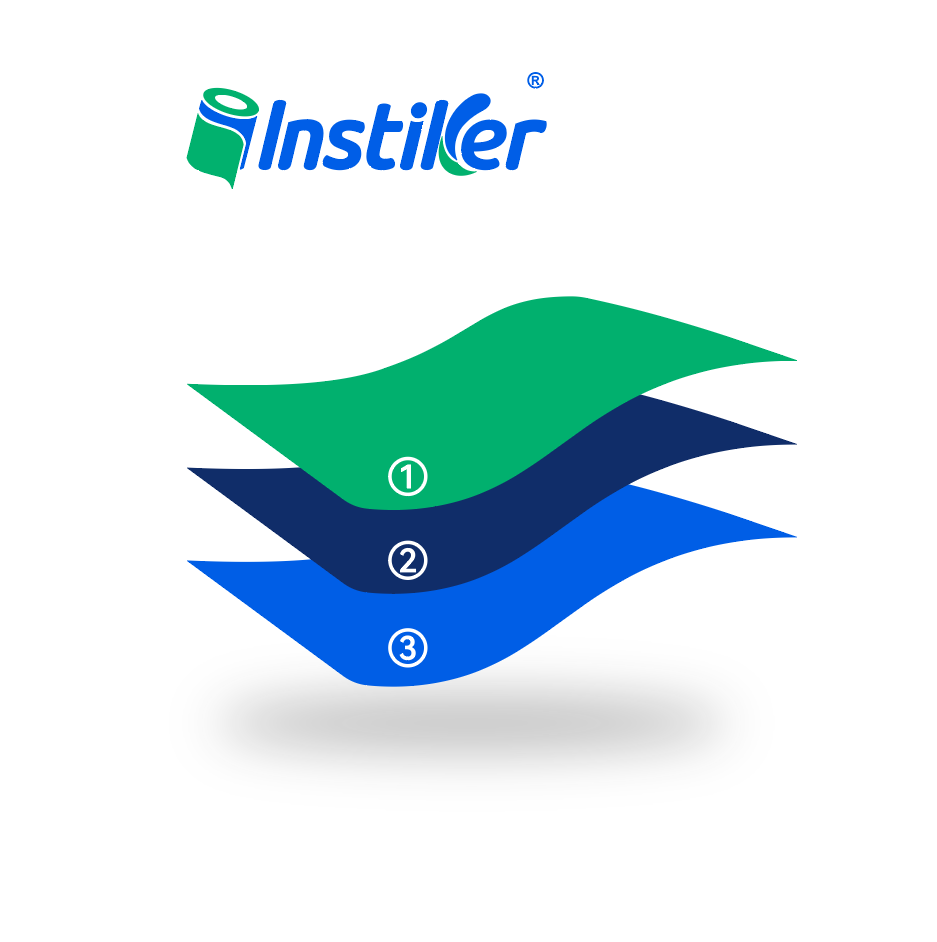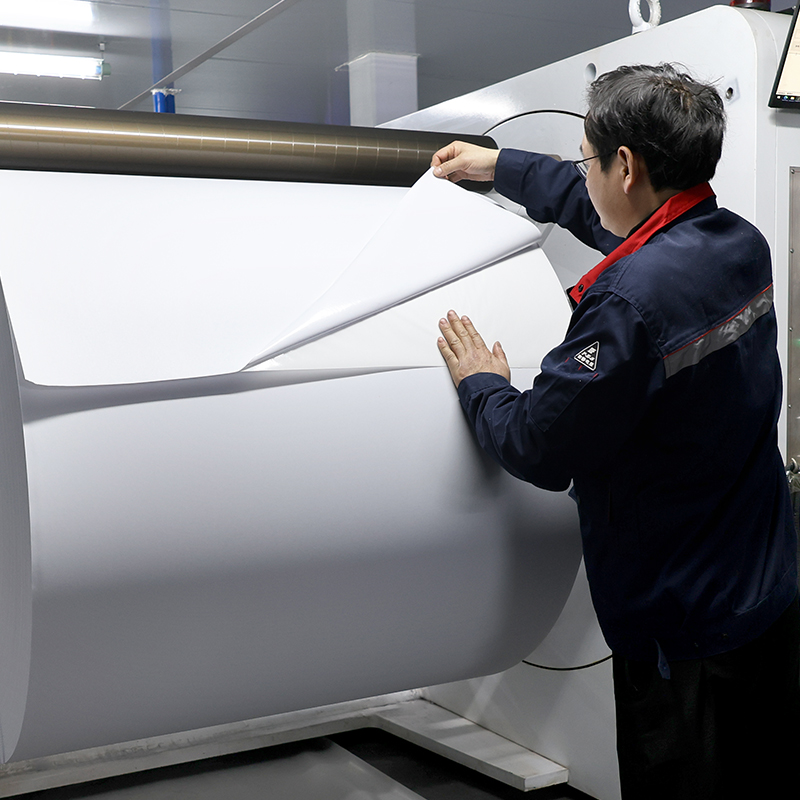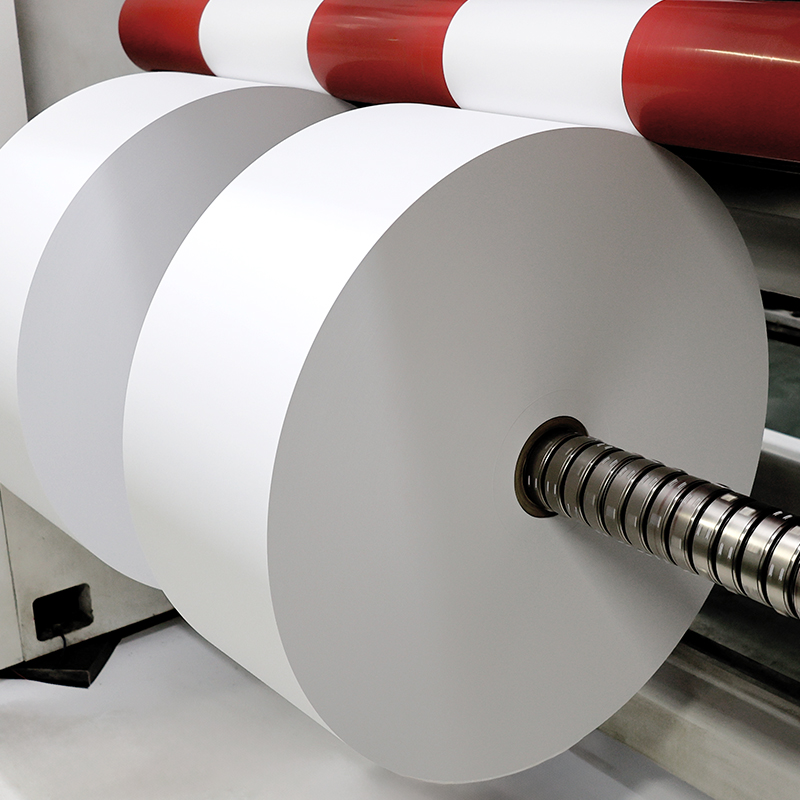Email:
Tel:
+86-18023461748
378 Maxin Road , Zhongluotan Town ,
Baiyun District , Guangzhou City China













YH20306
Instiker
| Color: | |
|---|---|
| Size: | |
| Material: | |
| Application: | |
| Availability: | |
| Quantity: | |

Product Name: 50μ Silver BOPP Acrylic 80g Square Gird Glassine
1. Face Stock: Silver BOPP
Caliper (μm): 50±5% GB/T 451.3-2003
Weight (g/㎡): 44±5% GB/T 451.2-2002
2. Adhesive Performance: Acrylic
Initial Adhesion (N): 8.95 FTM 9
20 min.180'Peel Adhesion (N/25mm) : 6.23/6.75 FTM 1
20 min.90'Peel Adhesion (N/25mm): 5.19 FTM 2
Storage Temperature: -15°C to 70°C
Minimum Lakelling Temperature: 10°C
3. Liner: Square Gird Glassine
Caliper (μm): 80±5% GB/T 451.3-2003
Weight (g/㎡): 78±5% GB/T 451.3-2003
It can be stored for 1 year at the temperature of 23+2°C and relative humidity of 50+5%
It is widely used in bar code printing and normal printing, die-cutting performance is excel-White Glassine lent. Excellent performance on many packaging materials.
It is widely used in various printing processes. Attention should be paid to controlling the viscosity of the ink to avoid the loss of the coating caused by over-viscous ink. Avoid exces-sive rewinding tension, which may cause label glue overflow. Simple text printing and bar code printing are recommended.
* Precision labeling: Labels for electronic components and medical devices.
* Anti- ounterfeiting + durability: Labels for auto parts and tools.
* Industrial scenarios: Environments resistant to oil and friction.
Q: Is this label fully recyclable?
A: Yes, the synthetic face stock and recycled kraft liner are both recyclable in plastic and paper streams, respectively. Remove adhesive residue before recycling.
Q: Can it be composted?
A: The face stock and adhesive are certified for industrial composting (OK Compost Industrial), breaking down into organic matter within 12 weeks under controlled conditions.
Q: How does it compare to traditional paper labels in wet environments?
A: The synthetic fibers repel water, making it 300% more moisture-resistant than kraft or paper labels, ideal for refrigerated or outdoor applications.
Q: Does the eco-friendly adhesive affect bonding strength?
A: No, the plant-based adhesive matches the performance of traditional acrylic adhesives, with a peel adhesion of 10N/25mm on stainless steel, ensuring reliable substrate bonding.



Product Name: 50μ Silver BOPP Acrylic 80g Square Gird Glassine
1. Face Stock: Silver BOPP
Caliper (μm): 50±5% GB/T 451.3-2003
Weight (g/㎡): 44±5% GB/T 451.2-2002
2. Adhesive Performance: Acrylic
Initial Adhesion (N): 8.95 FTM 9
20 min.180'Peel Adhesion (N/25mm) : 6.23/6.75 FTM 1
20 min.90'Peel Adhesion (N/25mm): 5.19 FTM 2
Storage Temperature: -15°C to 70°C
Minimum Lakelling Temperature: 10°C
3. Liner: Square Gird Glassine
Caliper (μm): 80±5% GB/T 451.3-2003
Weight (g/㎡): 78±5% GB/T 451.3-2003
It can be stored for 1 year at the temperature of 23+2°C and relative humidity of 50+5%
It is widely used in bar code printing and normal printing, die-cutting performance is excel-White Glassine lent. Excellent performance on many packaging materials.
It is widely used in various printing processes. Attention should be paid to controlling the viscosity of the ink to avoid the loss of the coating caused by over-viscous ink. Avoid exces-sive rewinding tension, which may cause label glue overflow. Simple text printing and bar code printing are recommended.
* Precision labeling: Labels for electronic components and medical devices.
* Anti- ounterfeiting + durability: Labels for auto parts and tools.
* Industrial scenarios: Environments resistant to oil and friction.
Q: Is this label fully recyclable?
A: Yes, the synthetic face stock and recycled kraft liner are both recyclable in plastic and paper streams, respectively. Remove adhesive residue before recycling.
Q: Can it be composted?
A: The face stock and adhesive are certified for industrial composting (OK Compost Industrial), breaking down into organic matter within 12 weeks under controlled conditions.
Q: How does it compare to traditional paper labels in wet environments?
A: The synthetic fibers repel water, making it 300% more moisture-resistant than kraft or paper labels, ideal for refrigerated or outdoor applications.
Q: Does the eco-friendly adhesive affect bonding strength?
A: No, the plant-based adhesive matches the performance of traditional acrylic adhesives, with a peel adhesion of 10N/25mm on stainless steel, ensuring reliable substrate bonding.


Silver BOPP self-adhesive label is a kind of self-adhesive label material with biaxially oriented polypropylene (BOPP) film as the base material, and its surface is treated by a special process to present a metallic silver mirror-like effect. Its structure is typically composed of a silver BOPP surface material, a pressure-sensitive adhesive layer, and a silicone oil paper substrate. It combines the physical properties of BOPP film with a metallic texture appearance and is widely used in label scenarios that require high gloss and weather resistance.
The acrylic adhesive provides a strong and reliable bond. It adheres well to a wide range of surfaces, including plastic, metal, and cardboard. This adhesive is resistant to environmental factors such as humidity and moderate temperature changes, ensuring that the labels stay firmly in place over time.
Grid-based backing paper is a special type of self-adhesive label substrate. Its surface is processed into a regular grid-like hollowed-out structure (similar to "honeycomb" or "square" hollowed-out structures), mainly used to solve the problems of bubbles and wrinkles during the labeling process of traditional silicone oil paper substrates, while also improving the waste removal efficiency and flatness of the label's adhesion. It is usually composed of a paper-based or film-based material and a silicon coating. The grid spacing and pore size of the hollowed-out parts are customized according to application requirements.

Silver BOPP self-adhesive label is a kind of self-adhesive label material with biaxially oriented polypropylene (BOPP) film as the base material, and its surface is treated by a special process to present a metallic silver mirror-like effect. Its structure is typically composed of a silver BOPP surface material, a pressure-sensitive adhesive layer, and a silicone oil paper substrate. It combines the physical properties of BOPP film with a metallic texture appearance and is widely used in label scenarios that require high gloss and weather resistance.
The acrylic adhesive provides a strong and reliable bond. It adheres well to a wide range of surfaces, including plastic, metal, and cardboard. This adhesive is resistant to environmental factors such as humidity and moderate temperature changes, ensuring that the labels stay firmly in place over time.
Grid-based backing paper is a special type of self-adhesive label substrate. Its surface is processed into a regular grid-like hollowed-out structure (similar to "honeycomb" or "square" hollowed-out structures), mainly used to solve the problems of bubbles and wrinkles during the labeling process of traditional silicone oil paper substrates, while also improving the waste removal efficiency and flatness of the label's adhesion. It is usually composed of a paper-based or film-based material and a silicon coating. The grid spacing and pore size of the hollowed-out parts are customized according to application requirements.

With a special coating on the surface, It can be used for various printing methods such as lett-erpress, flexographic, gravure and screen printing. It has excellent hot stamping performance and effect. UV ink and water-based ink are applicable. Avoid printing to the edge of the label, espe-cially screen UV ink and UV varnish. The high shrinkage ink layer will cause the label to curl, resulting in separation from the release paper or warping on the object being attached.
With a special coating on the surface, It can be used for various printing methods such as lett-erpress, flexographic, gravure and screen printing. It has excellent hot stamping performance and effect. UV ink and water-based ink are applicable. Avoid printing to the edge of the label, espe-cially screen UV ink and UV varnish. The high shrinkage ink layer will cause the label to curl, resulting in separation from the release paper or warping on the object being attached.